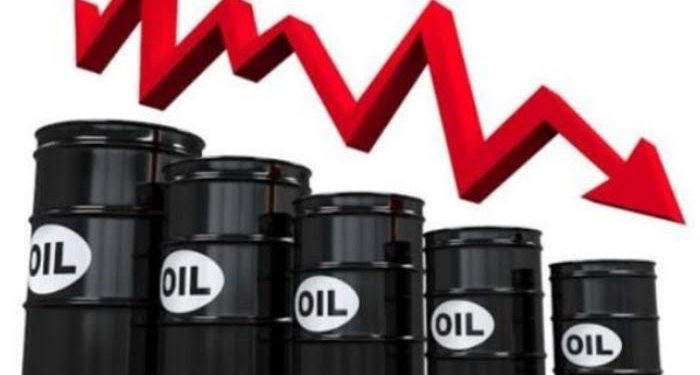Nigeria faces fresh macroeconomic turbulence as global oil prices tumble below $60 per barrel, exposing the country to heightened fiscal and currency risks. This latest shock could undermine the Central Bank’s ability to stabilize the naira and widen the government’s already stretched budget deficit.
The decline in Brent crude prices is largely driven by a surge in supply from OPEC+ countries and waning global demand. While Nigeria has been praised for recent reform efforts such as removing fuel subsidies, liberalising the foreign exchange market, and unifying exchange rates the oil price crash is testing the resilience of these gains.
Investors remain cautious despite acknowledging the progress. Joyce Chang, Chair of Global Research at JPMorgan Chase, commended Nigeria’s reform steps but highlighted deteriorating external conditions, including the impact of new U.S. tariffs, which could cost the country up to 3% of its GDP.
Oil price volatility remains a major risk for Nigeria’s largely oil-dependent economy. With declining oil receipts, the Central Bank’s capacity to defend the naira through foreign inflows could weaken, potentially triggering further depreciation pressures on the currency.
The situation is worsened by recent decisions within OPEC+, where Nigeria has minimal influence. Major producers like Saudi Arabia and Russia have agreed to reintroduce 2.2 million barrels per day of previously withheld supply by October. Nigeria, however, is unlikely to benefit due to persistent production shortfalls caused by pipeline vandalism, oil theft, and ageing infrastructure. It continues to underperform its quota and remains vulnerable to declining oil revenues without the offset of increased output.
Market indicators offer little hope of a quick rebound. Forecasts by Barclays predict Brent crude to average $66 in 2025 and $60 in 2026. A recent survey cited by BNN Bloomberg shows most global banks expect oil prices to stay below $60 well into the possible return of a Trump presidency. With U.S. shale producers expanding output and global demand softening, the oversupplied market threatens prolonged pressure on prices unless geopolitical shocks cause a sharp reversal.
In response, Nigeria’s government is initiating a series of contingency plans. At the recent IMF Spring Meetings, Minister of Finance Wale Edun acknowledged the economic headwinds but said the government is adjusting its budget expectations. He revealed that a subcommittee under the Economic Management Team—including the Central Bank and Budget Ministry, is currently modelling new scenarios to guide fiscal policy.
To stabilize revenues, the government has tasked the new leadership of the Nigerian National Petroleum Company (NNPC) with improving oil output and reducing inefficiencies. In parallel, efforts are being ramped up to boost non-oil revenue through a digital revenue assurance strategy. This includes plugging leakages in Ministries, Departments and Agencies (MDAs), and expanding the tax base.
With oil prices unlikely to recover quickly, Nigeria’s economic future may depend increasingly on how fast it can diversify its revenue base and build resilience beyond petroleum.










